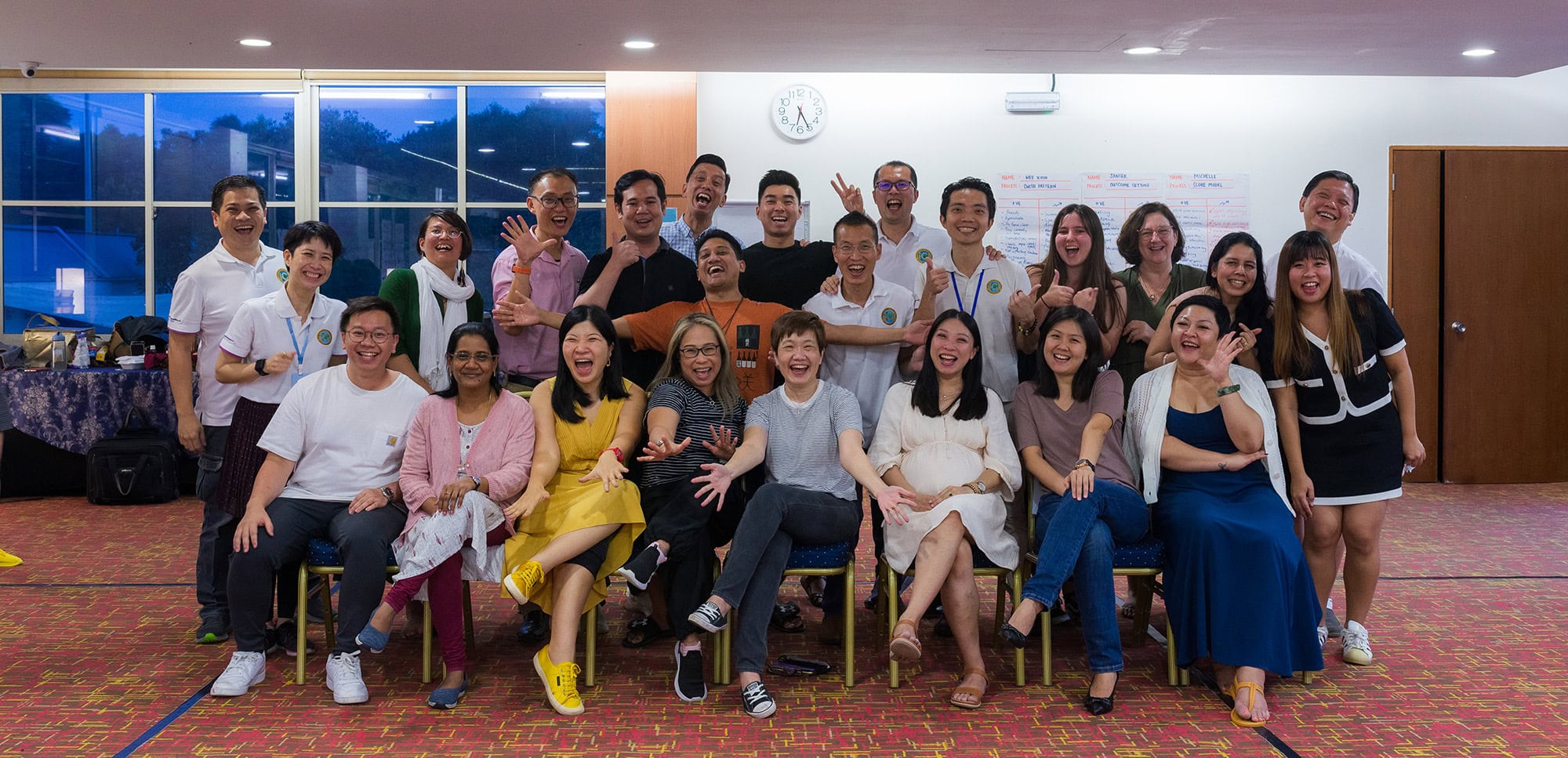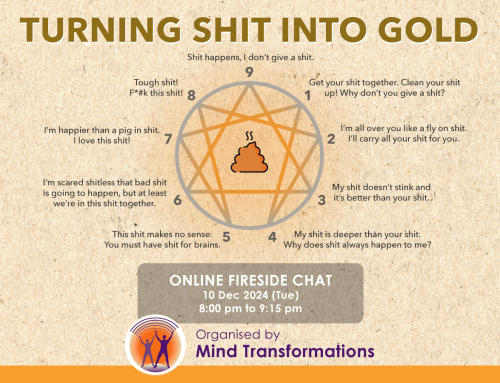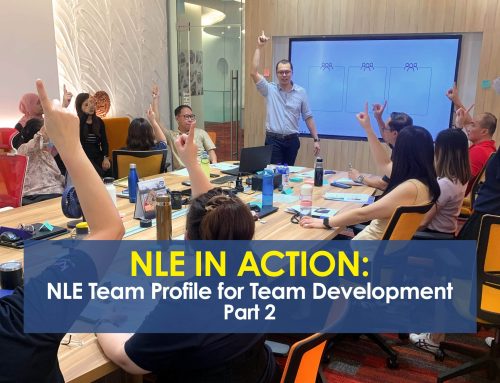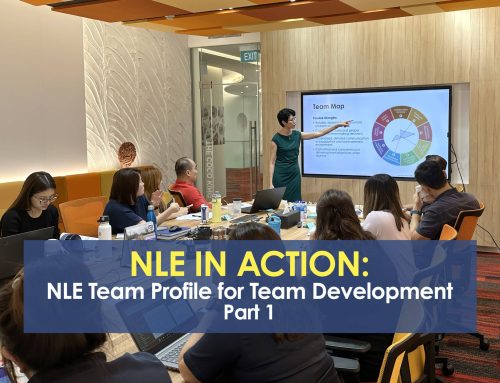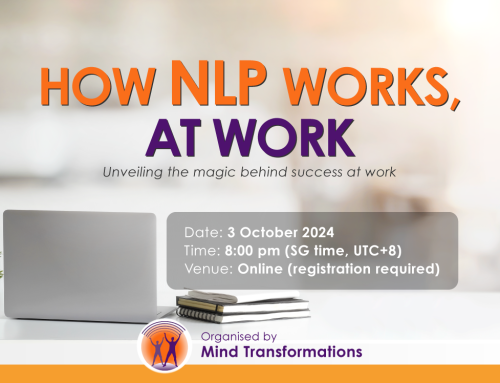Lee Peilin
(*This sharing was transcribed from a verbal transcript of Peilin's spoken thoughts.)
I can't believe how I've managed to get through my working life without some of these tools.
In this one year after NLE, my relationship with key stakeholders at work has improved significantly. In the past month of applying what I've learnt in NLP, I have seen changes in my relationship with my team members.
If I had had these tools earlier, imagine the difference that could have been possible in my relationships with my direct reports, peers and even my boss.
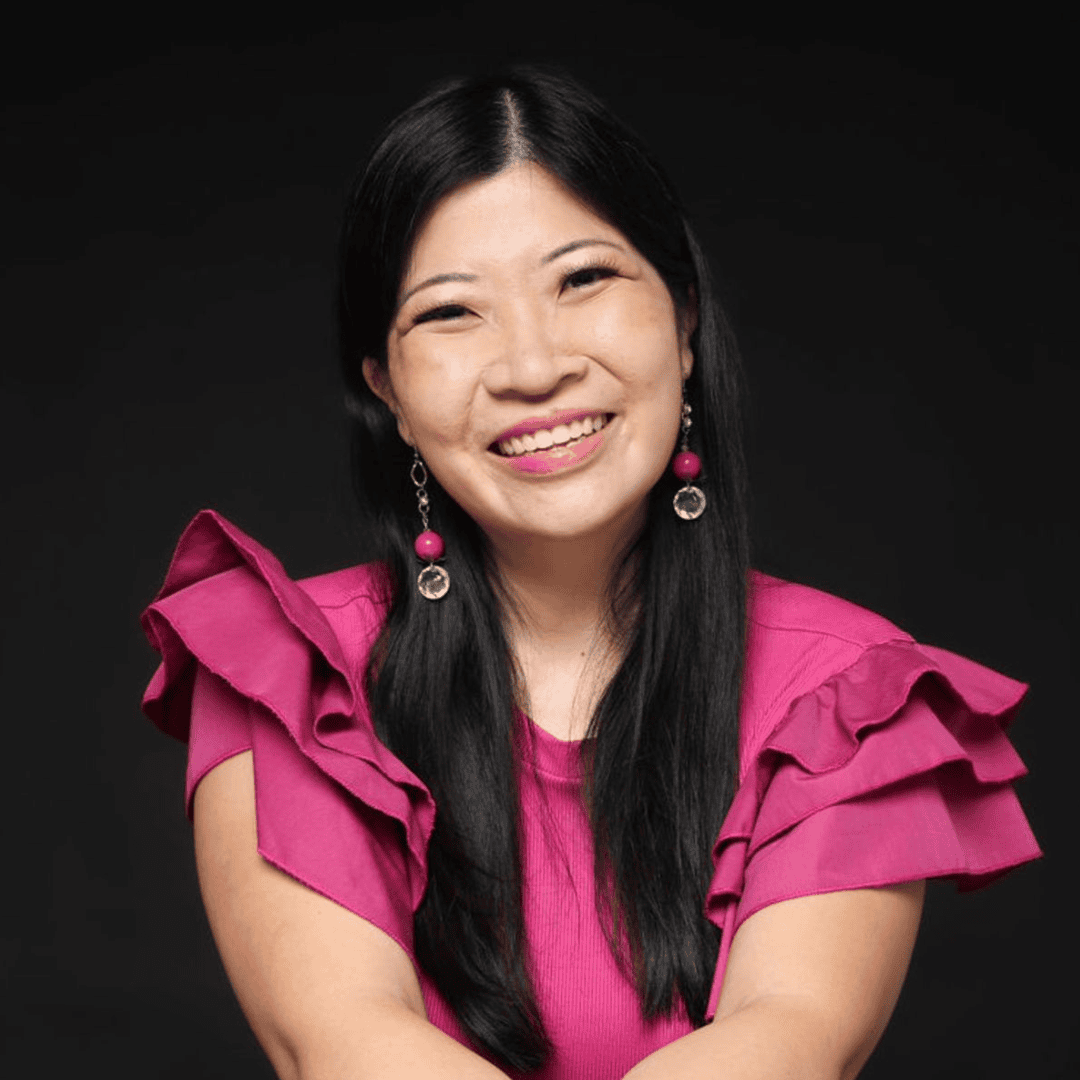
1) What brought you to the NLE course?
When I first learned about the Enneagram more than ten years ago, I gained a lot of self-awareness. By recognising and understanding myself when I'm under stress, I could catch myself when I was going in a downward spiral. Thanks to the Enneagram, I had become a different person.
I was having a very challenging time with two people at my workplace. I had tried everything I knew, but the relationships weren't improving. I was very concerned. These relationships were becoming push factors in a job that I love. There had to be a better way to interact with them, but I didn't know how.
2) What is the effect of completing your NLE training?
I've always known that people are different, but I didn't know how they were different.
NLE gave me the language and a system for understanding others. It became tangible for me to observe and understand what the other person was like—their tendencies. Knowing others' tendencies makes things predictable. I can acknowledge how we are different and see the possibilities in how we can synergise.
I now have nine chapters in the Book of Life that I can refer to and understand—am I stepping on their toes? What do they fear? What motivates them? That helped me adjust how I interpret their behaviour and respond to them.
I started observing my co-worker to figure out her core type, and then when I felt triggered, I reminded myself to consider what her positive intention could be. Over time, I gathered the courage to acknowledge her positive intention to her.
Months later, I noticed that our relationship had shifted. My interaction with my co-worker is now much calmer. Learning the NLE and knowing her positive intentions helped me shape our discussions, understand the difference in our points of view, and anticipate the direction of some conversations.
When I came to NLE class, I could just be myself because I didn't know anybody. The contrast made me realise that I had been repressing my personality at work.
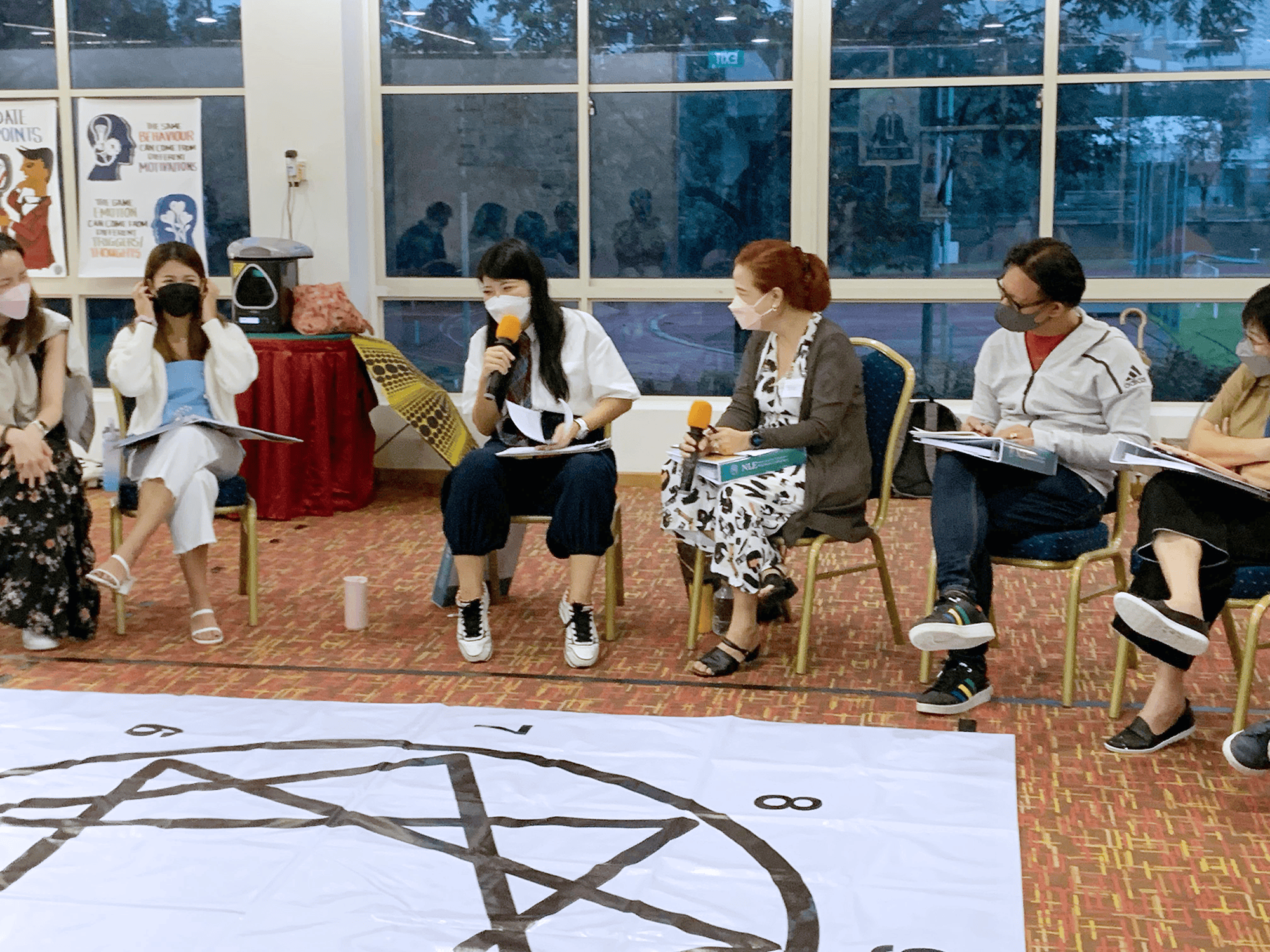
When repressing myself, I did not allow myself to show up at all. Now, I can adjust myself. I sometimes deliberately bring my lightness into meetings before switching to "work mode" to demonstrate that I appreciate the need to be serious while permitting myself to be me for a bit.
There are other times when I lean on my secondary or third Type because it is more useful in that situation.
With greater awareness comes greater responsibility. Through NLE, I also learned how to create a safe space for others.
3) What stood out for you in the NLE course?
NLE provided the structure of seeing each Enneagram type in the four intelligences, deeply understanding each part and bringing them together.
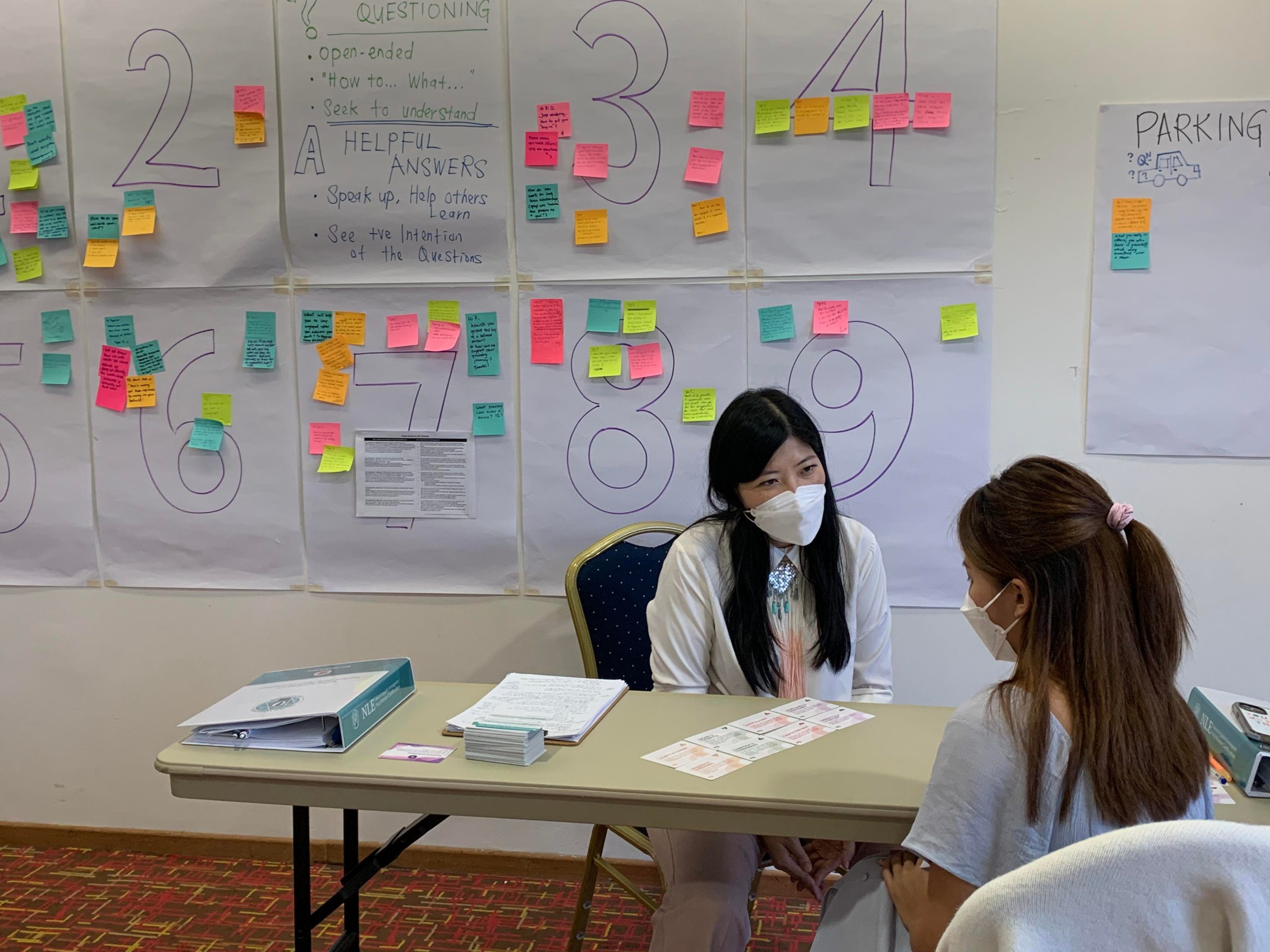
What stood out was learning the framework to observe the people around me using multiple intelligences and having my classmates be the living embodiments of the Enneagram types—their challenges, how they showed up, and how they interacted with other Types. That helped me remember things very clearly.
The manual was very helpful. It is concise and organised by themes instead of Types, categorised by the four intelligences and things like worldview, fears, and motivation.
I refer to the manual a lot. I love that it's malleable and so portable. When I meet my coaching clients, I read the manual and bring only the relevant pages for my coaching sessions.
Kudos to the team who put together the manual. A lot of work went into it. It's not just a vomit of words but something very usable.
4) What other features of the programme stood out for you?
How the learning was organised by the multiple intelligences. In the Physical Intelligence (PQ) section, Agnes asked us to observe how we breathe. I had no idea what everyone was talking about. Don't we all just breathe in and out? As I listened to others, I became intrigued because there *were* differences among the Types, in the way we breathed and even the words we used.
I realised how disconnected I was from my body. I also discovered that paying attention to my breath made me notice other things, like my shoulders, posture, etc. The experience and resulting realisation were completely different from if someone had merely told me that noticing the breath is very important.
The experiences throughout the programme, interaction with different people and hearing how they expressed their insights sparked many insights for me.
5) Who do you think the NLE course may be relevant for?
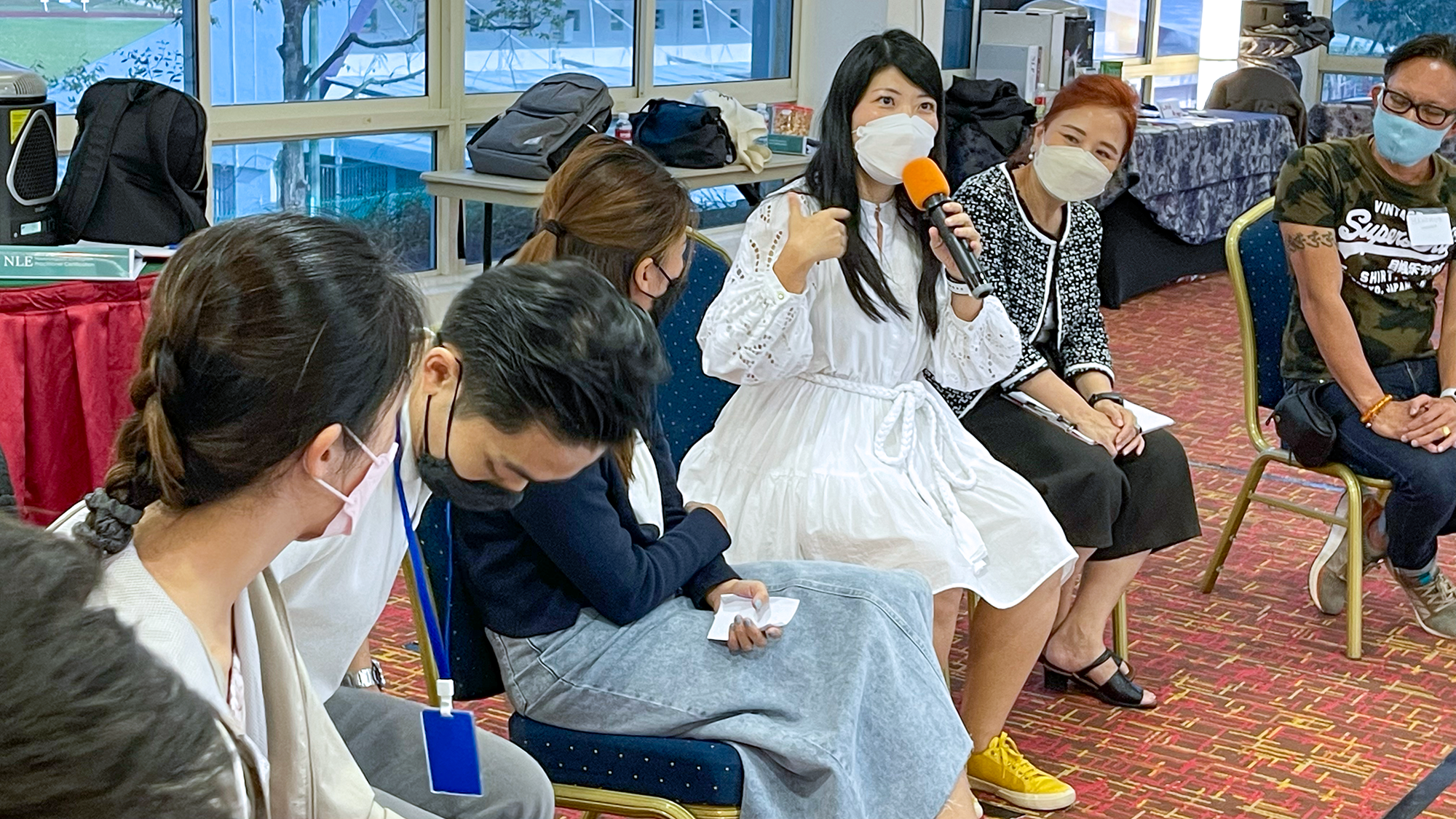
If there is a person who's very important to you, with whom you are struggling to build a closer relationship, understanding your Enneagram Type and that person's Enneagram Type is a great starting point to build a bridge to connect with them.
Instead of struggling and becoming frustrated, the NLE guides you through how each Type shows up in their multi-intelligences. It helps you see that person and yourself more clearly and choose the steps you want to take to improve the situation.
6) What brought you to the NLP course?
After completing the NLE course, I started debriefing clients on their NLE profiles. While the neuro-actionables in the report were helpful to the client, I wanted to provide more tangibility to support them along their journey. Beyond the NLE report, I lacked the tools for that.
My NLE classmates who had done their NLP training told me, "The answers you seek are in NLP."
Seeing how Mind Transformations conducted the NLE training, I have complete confidence in them. So, I signed up without even looking at what the NLP training covers.
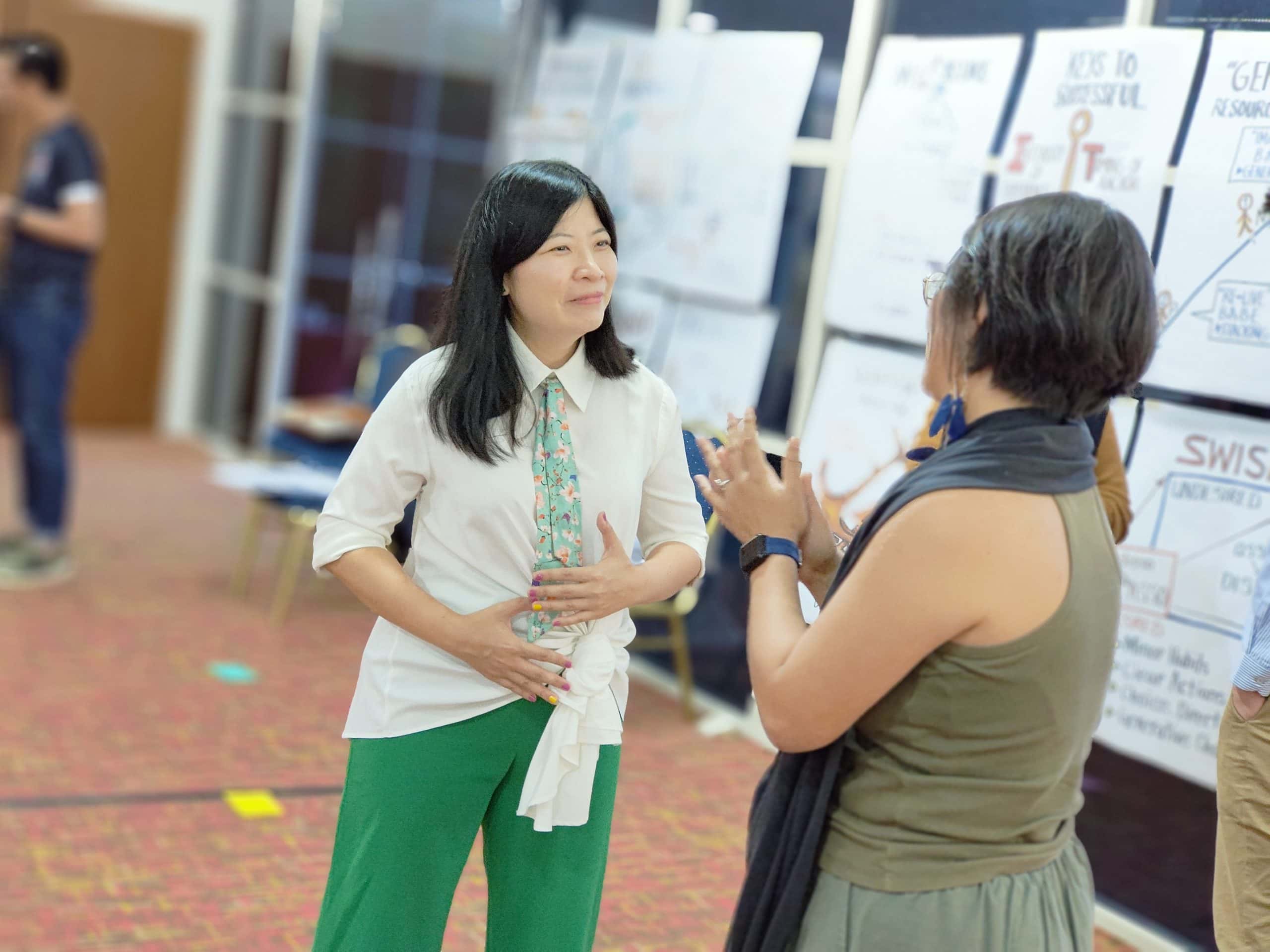
7) What are your takeaways from the NLP training?
People want to be heard, and I am responsible for letting them know they are heard. That will show up in my state, the energy I bring, and my backtracking.
The tools I have learned in just the first two modules have exceeded my expectations. I've used tools like outcome setting with my clients to a great degree. One client thanked me because it helped her visualise the outcome and identify the steps that she needs to take to achieve it.
Because I came to class to benefit my coaching clients, I only thought about applying the tools in that context. A conversation with Agnes changed that. I have many more touchpoints with my colleagues and family members.
Since then, much of my practice has come from my day-to-day and work interactions, such as using conversational frames.
Although I came with a very specific context, what I've learned is so useful and flexible that we can use it anywhere. The application of NLP is so broad.8) What did you like about the programme?
I like the mix of small "worksheet" exercises and intense one-on-one practice. The worksheet exercises give variety in practising with different people and make the lesson more concrete through small, incremental steps. The one-on-one practice is when you apply and piece together multiple things you've learnt.
What's great is that it is a safe space to practise here and get feedback. Getting it wrong is okay because we're all learning.
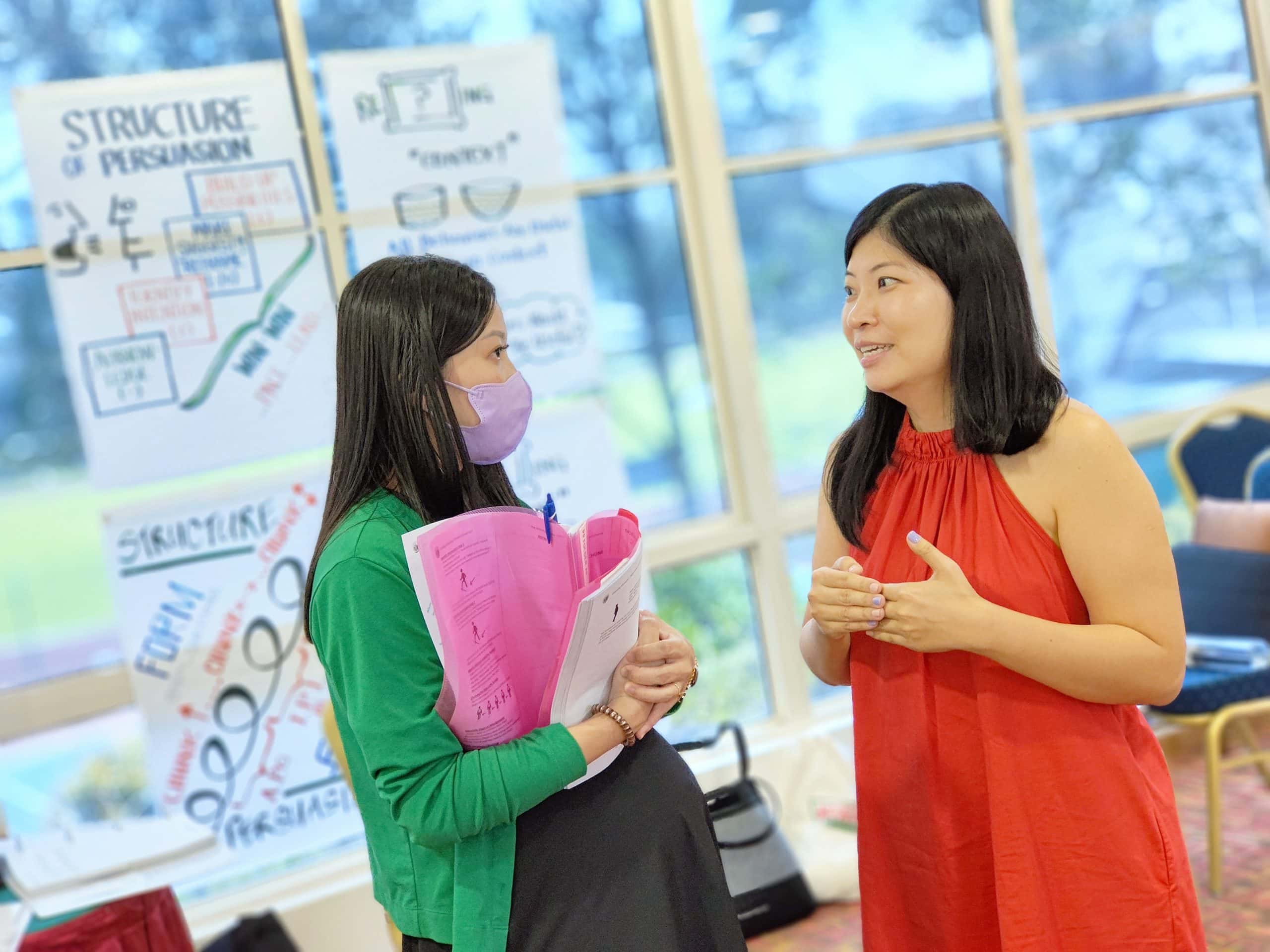
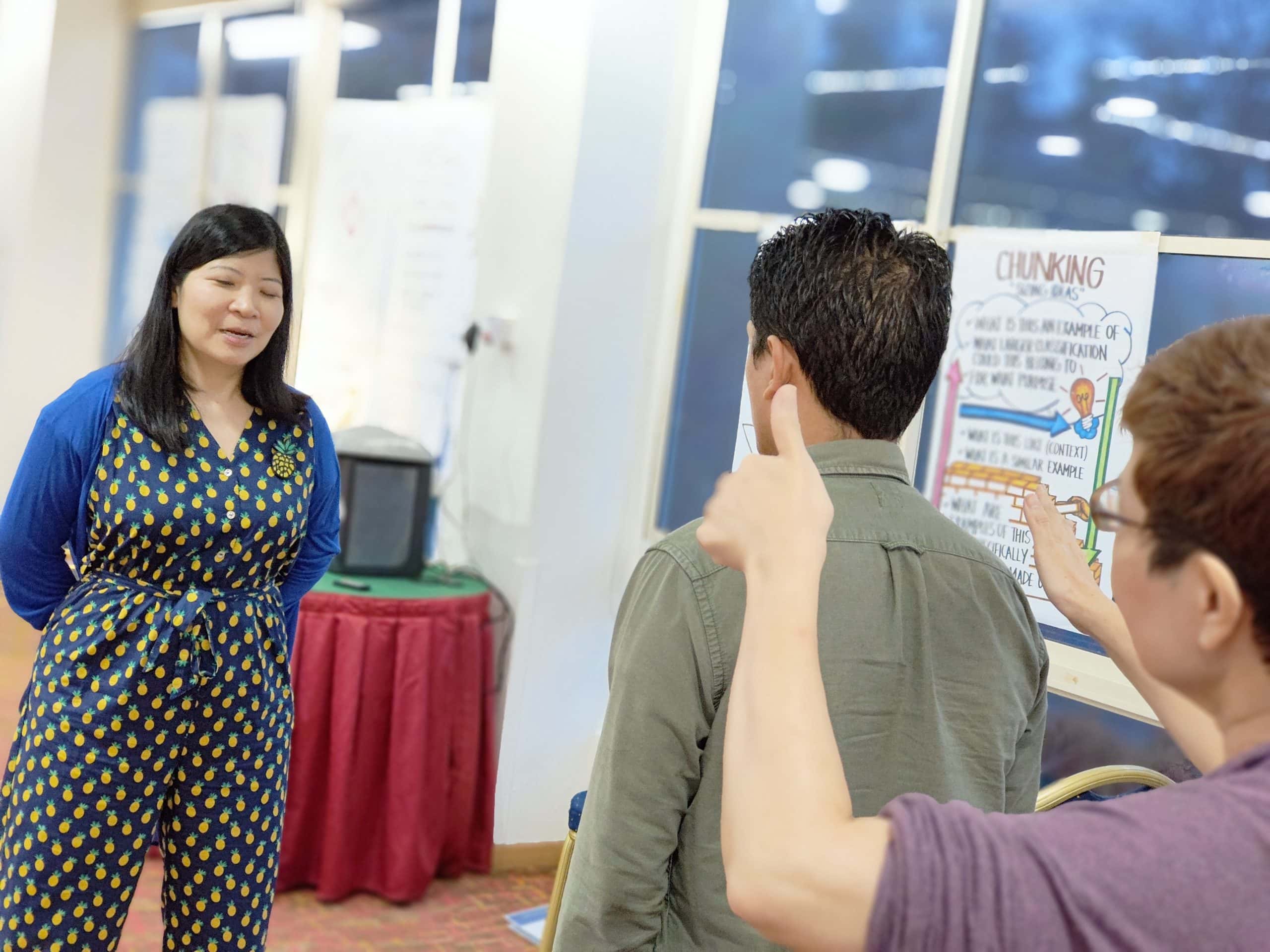
9) Who do you think the NLP course may be relevant for?
If you are a team leader responsible for a group of people, I highly recommend NLP because it helps you understand how you are such a significant contributor to how your team shows up. The way your team shows up is a reflection of you and how you show up.
NLP gives you many usable, malleable and flexible tools you can apply quickly to create a more deliberate, best possible version of yourself. These tools help us reveal our best selves—from diamonds in the rough—by chipping away the mud, cutting it into a shape that best reflects the light, and shining it.
And then, when you shape yourself to be the best possible shiny diamond you are, your light will reflect off the other diamonds around you. You can help them see that they, too, are diamonds, and also help them chip away at what's hiding their brilliance.
10) Anything else you want to add?
To me, NLE helps a lot with self-awareness and self-acceptance. The application of the Enneagram is more focused on the self and very deliberately with identified individuals. NLP is the self-mastery piece because it gives you these tangible tools to take to the outside world.
What has been helpful is the presuppositions.
NLE and NLP both highlight certain universal truths. The Enneagram reveals universal truths about yourself, your Type, and also other Types. NLP reveals certain truths about how you interact with people.
That gives me the breathing space to be myself. It has also given me many tools to support other people by creating a safe space, listening, and helping them uncover what is stuck or bothering them.
That didn't happen by accident. The programmes are very intentional.
They have helped bring to light things that I have been unconscious about, so I can consciously choose what I want to repeat and what I want to change. Then, with the tools I've learned, I can create a new reality.
